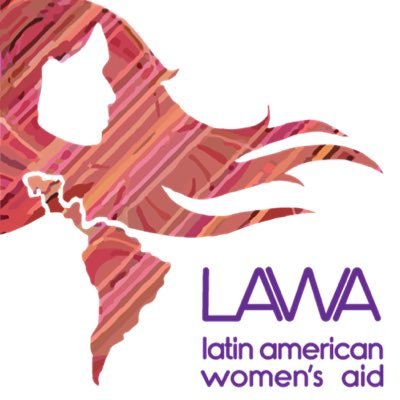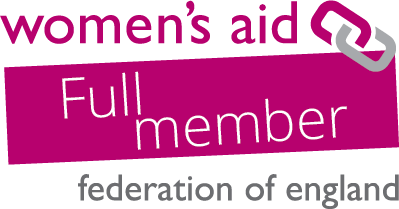Women’s rights organisations, led by Latin American Women’s Aid, win landmark case in ensuring confidentiality of women’s refuge addresses:
- Judgment rules that only in circumstances which are truly exceptional and urgent, should documents be personally served on women at refuges’ residential addresses.
- Women’s refuge addresses are always confidential – this is to protect the safety of the women who have fled into emergency accommodation and campaigners are delighted that the courts have recognised this.
- Judgment also recognises the multiple barriers to accessing specialist support faced by migrant women and the discrimination they face as a result.
The case concerned draconian and dangerous location orders being made against a woman living in a refuge, the staff in the refuge and numerous other agencies demanding that the refuge address be handed to the solicitor for the other party in the case, against whom domestic abuse is alleged. The orders placed the safety of the woman in the refuge at risk as well as the other women residing there and caused enormous distress to the staff against whom the orders were made and who were ordered not to discuss the orders with their line managers.
Following a joint submission led by Latin American Women’s Aid and involving Refuge and Women’s Aid Federation England ‘(Women’s Aid’), the High Court of England and Wales has ruled that family courts must be much more protective of the residential addresses of women’s refuges for the safety of all of the women and children who reside there. Women living in refuge should not be required to provide residential addresses to the court or be personally served at the refuge except in truly exceptional and urgent circumstances. The court has also ruled that the alternative methods of serving orders, suggested by the charities are perfectly valid and safe.
During the case, the women’s organisations had highlighted that personal service of court orders at a refuge has a distressing and traumatic impact on women and their children resident there and was undermining the safety and protection that a refuge service can provide. The women’s organisations provided the court with examples of poor practice on the part of the court in other cases that had significant consequences for the safety of women in refuge including, in one case, a child being abducted.
Importantly, the guidance acknowledges that the “mere fact of being a migrant woman with historic links in another country, insecure immigration status or having no recourse to public funds is not sufficient to show there is a risk of abduction. The act of seeking refuge mitigates against any risk that might exist.”
Angie Herrera, Director at Latin American Women’s Aid (LAWA), said:
“We would like to honour and acknowledge all the Latin American and other Black and minoritised women and children survivors of violence and abuse who have been horribly revictimised by the Justice system as a result of the improper use of location orders. The further trauma inflicted upon women and their children evidence how the system is not only failing to protect and support survivors from minoritised communities but further harming them.
In the three cases LAWA has dealt with since 2019, we believe that these orders stem from the discriminatory and disproportionate presumption that there is increased risk of abduction of the child by the mother because of being migrant. The impact of these orders can be devastating, including, in one case, the abduction of the child by the perpetrator. Women survivors of gender-based violence who are from Black and minoritised backgrounds face additional challenges given the intersecting disadvantages that shape their experience of abuse. And, in this context, we welcome the recent judgement from the High Court, that not only protects the confidentiality of refuge spaces but also considers an intersectional approach. This is an important precedent within the UK justice system.”
Baljit Banga, Executive Director at Imkaan, said:
“I welcome the President’s judgment on four very critical points that Imkaan hopes will pave the way for future considerations by the court. The judgment ensures that ALL women, girls, and children are protected when they flee violence, and this includes migrant and Black and minoritised women whose needs for safety are often overlooked by institutions that should be protecting them. The judgement ensures that the system itself is not revictimizing migrant, and Black and minoritised women. This is a crucial first step towards a trauma-informed approach within institutions and it is hoped that it will positively impact institutional cultures and behaviours towards women. The recognition of intersectionality is a landmark because it means the needs of migrant and Black and minoritised women, girls and children need consideration by public institutions in the responses they offer and that their rights for safety and protection matter. Intersectionality places the lived experiences of women at the heart of institutional responses, and we are hopeful that it will have a transformative impact. Further, by and for Black and minoritised and migrant women and girls’ organisations and the staff who deliver life-saving support can rest a bit more easily today because it is hoped that they will not be interrogated or placed under pressure of arrest by Police to reveal confidential refuge addresses. Finally, LAWA was at the forefront of this challenge, and I acknowledge them for their courage and leadership. The court has demonstrated a significant first step. We have a long way to go until ALL women are safe and this is a course-changing critical measure.”
Dr. Charlotte Proudman, Barrister, Goldsmith Chambers said:
“I am proud to have worked with LAWA for almost three years, as we tried to introduce safeguards for women and children living in refuges. In a number of cases, there have been unintentional disclosures of refuge residential addresses through the courts, which can leave women and children at a significant risk of irreparable harm. The President’s Judgment provides crystal clear guidance on a safe approach for women and children in refuges. I am particularly humbled to read the specific reference to migrant women’s intersectional inequalities in the Judgment. This is perhaps one of the first – if not ’the’ first – court Judgment which acknowledges the multiple barriers of inequalities and oppression that migrant women suffer including no recourse to public funds, immigration insecurity, discrimination from authorities, language challenges et cetera. Recognising and naming migrant women’s inequalities in a court Judgment is a major step towards achieving equality as it makes visible the oppressions migrant women suffer – and it will increase marginalised women’s confidence in the family justice system. This is a remarkable Judgment.”
Ruth Davison, Refuge Chief Executive said:
“Refuge is thrilled with this judgment and delighted to have had the chance to work with LAWA to achieve this remarkable outcome for survivors and their children. The locations of emergency accommodation refuges are confidential for a reason; because they provide a safe place for women and their children who have fled domestic abuse. It is unconscionable that perpetrators have been able to potentially breach this confidentiality and find the location of these safe houses. Women’s safety depends on these locations being private, and we are delighted that the court has agreed with this.
We are also extremely pleased that the judgement has recognised the additional and unique impact the practice of serving orders directly to refuges has had on migrant survivors. Women with insecure immigration status and/or no recourse to public funds (NRPF) are already hugely disadvantaged by the system, and their needs must be recognised. Insecure immigration status should never be a barrier to accessing support, and placing increased barriers in the way of migrant women means that the system does not currently protect all women experiencing domestic abuse. That must change.”
Farah Nazeer, Chief Executive, Women’s Aid- said:
“We welcome this important judgement from the High Court, which is a testament to the dedication and perseverance of Latin American Women’s Aid. Women’s refuges are far more than a ‘roof’ – they are a place of safety for women and children escaping domestic abuse, and provide holistic, trauma-informed support. But for too long we have seen this safety undermined by the personal service of court orders on women living in refuges, when safer alternatives were always available. As Latin American Women’s Aid showed so clearly, Black, minoritised and migrant women were being disproportionately impacted. We hope that today’s judgment will ensure that no more women, children and staff within refuges are subject to this unsafe practice.”
Olive Craig, Senior Legal Officer, Rights of Women said:
“We are thrilled to have represented Latin American Women’s Aid in this case and commend them for achieving such an important judgment for migrant women fleeing abuse. It is an extremely positive step forward to see the President of the Family Division recognise the importance of the court considering the additional barriers faced by migrant women fleeing abuse. It should never be the case that a migrant woman should be treated more harshly by the court simply because she is a migrant, but we have seen the court fail to recognise arguments based on a women’s immigration status as being discriminatory. We really hope this case will lead to judge’s thinking more carefully about arguments that are discriminatory and refusing to accept them.”
ENDS
For further inquiries contact LAWA at [email protected]
Related information and news articles:
Vulnerable women put at risk as courts in England and Wales reveal refuge locations.





